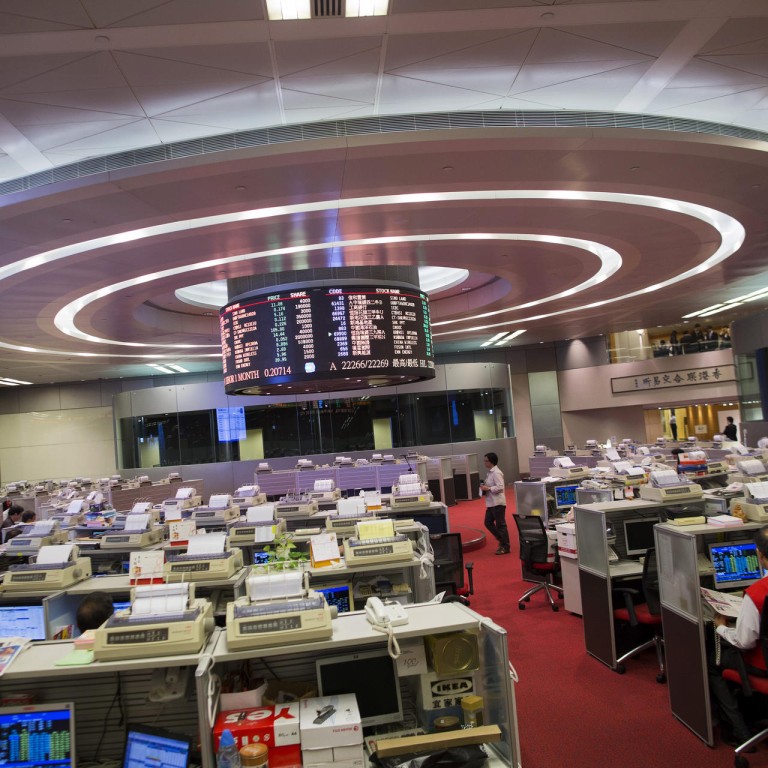
China bulls look to run on bargain shares strategy
Another year of losses is more reason to buy for some investors, who see a match on valuations with shifts in global capital out of boom markets
Few investments have disappointed as consistently in recent years as China equities.
The Hang Seng Index went up a mere 2.9 per cent in 2013 while the A-share-tracking CSI 300 lost 7.6 per cent in the year just gone.
The sorry performance contrasts sharply with that of soaring Japanese and United States equities - the Nikkei-225 Index finished the year up nearly 57 per cent and the S&P 500 29 per cent.
Investors by now are familiar with the litany of issues that dog China equities. First is slowing growth. When Finance Minister Lou Jiwei said on July 12 he would be comfortable with an economic growth rate of as low as 6.5 per cent, the CSI 300 index dropped 2.2 per cent. The idea of slowing mainland economic growth has kept down mainland equities since.
I’m super bullish [on China]. I’m investing and advising clients to invest
The mainland's frequently spiking interbank rates have also had a role. The three-month lending rate used among banks doubled in June-July and again jumped in November and December. Each round of rate spike alarmed investors about the health of the mainland banking system, particularly with analysts continuously revising upwards their estimates of non-performing loans.
Louis Kuijs, a Royal Bank of Scotland economist, said the People's Bank of China did not have a mandate to control interest rates but was focused on keeping aggregate money supply within targets. The upshot is that investors would need to brace themselves for regular rate spikes this year. "What we saw in December was not pretty, and if we saw a lot of these episodes, growth prospects would be harmed," Kuijs said.
With much of the Hong Kong equities market weighted towards real estate stocks, government cooling measures aimed at the property markets both in Hong Kong and on the mainland also hurt share prices.
The Hong Kong government in February last year doubled the stamp duty on property transactions valued at more than HK$2 million.
The mainland government, meanwhile, in March rolled out a series of tough measures, such as the strict enforcement of a 20 per cent capital gains tax on property sales.
"Sentiment towards the Hong Kong equities market is very driven by the real estate market … and the measures that were brought in to cool property markets in 2013 were a shock," said Gary Dugan, chief investment officer, Asia and Middle East, for Coutts.
More recently, A-share investors have had to contend with the fact that China's new listings market is reopening. Brokerage Gao Hua Goldman Sachs estimates that about 400 companies will list on the mainland this year, raising about 200 billion yuan (HK$253 billion), from no listings in 2013. This will drain cash from an already illiquid secondary market.
Commentators frequently note that A shares are historically cheap on a price-earnings basis. At a PE of 10.6 times, the Shanghai Shenzhen Composite Index is trading at exactly half its 10-year average.
A similar argument can be made for H shares, with the Hang Seng China Enterprises Index 41 per cent below its 10-year PE, and for the Hang Seng Index, 22 per cent below (see graphs).
"I'm super bullish [on China equities]. I'm investing and advising clients to invest. Not on momentum or hype, but on the fact that valuations are at a decade low," said Robert Jones, the head of FCL Advisory, which advises family offices and wealthy individuals.
China equities are starting to get interest as the last major asset that has not ridden a rapid price boom, unlike bonds, property and developed-market equities. The US and Japanese markets in particular have absorbed a lot of cash from the local equities market and some of that money is overdue for a return.
"Everyone is warning about an overpriced market in the US," Jones said.
More locally, the vast demand for Chinese high-yield debt of recent years seems to be cooling, which should divert some capital into equities.
"Money is definitely moving out of global bonds," said Mona Chung, the chief investment officer for CIFM Asset Management. "China A shares are at a depressed valuation. If investor sentiment continues to improve, if reforms play out, there should be some upside."
Finally, with spot gold prices down by 28 per cent in 2013 and expected to fall further as the US Federal Reserve winds down its money-printing programme, investors are looking for inflation-beating alternatives, such as cheap, neglected China stocks - 2014 may finally be their year.


